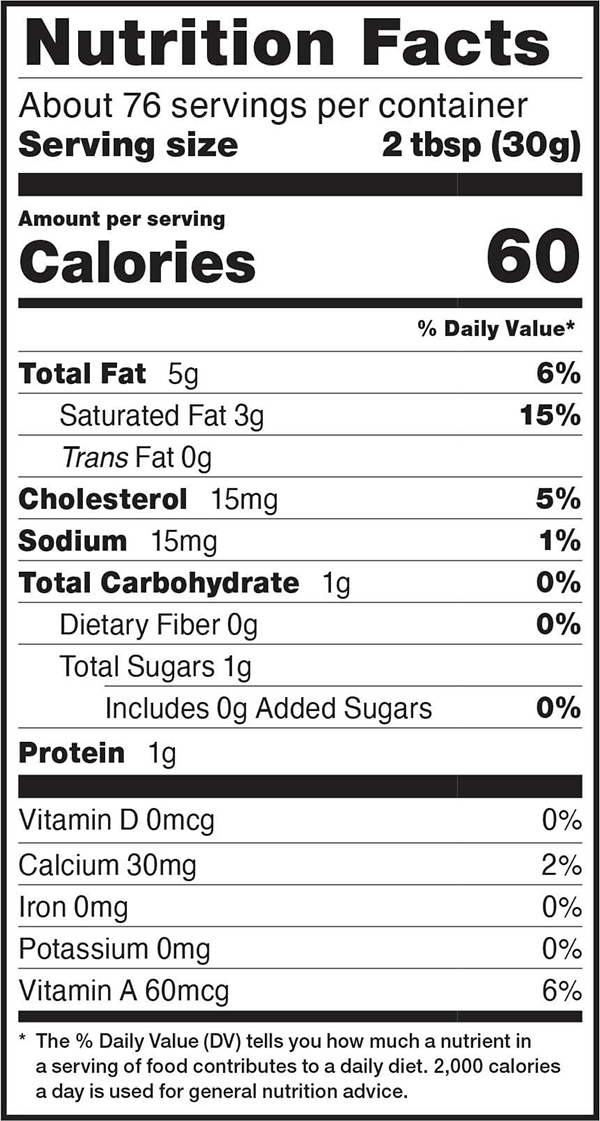
Effective Ways to Choose Science Diet Puppy Food in 2025
As pet ownership continues to grow, understanding how to choose the right food for your puppy is paramount. Among various options, Science Diet puppy food stands out because of its commitment to nutrition and health. The importance of selecting the best puppy food cannot be overstated, as it impacts not only growth and development but also overall well-being from day one. In this article, we will explore several effective ways to choose the best Science Diet puppy food for your furry friend, tailored to address their specific nutritional needs and dietary preferences.
As new innovations emerge in pet nutrition, it’s essential to stay informed about the best options available in 2025. We will discuss puppy feeding guidelines, common misconceptions, and practical tips, while also reviewing popular Science Diet formulas. Key takeaways will help you make educated decisions for your puppy’s health and happiness.
Understanding Puppy Nutritional Needs
Before diving into specific products, it is important to grasp the essential nutritional needs of puppies. Puppies require a balanced diet that includes protein, fats, carbohydrates, vitamins, and minerals to support their rapid growth and development.
What Makes Up a Healthy Puppy Diet?
A healthy puppy diet consists of high-quality protein sources, such as chicken or lamb, which are crucial for muscle development. Additionally, incorporating omega fatty acids promotes healthy skin and coats. Carbohydrates provide the necessary energy, while vitamins and minerals support bone health and immune function.
Importance of Protein-Rich Puppy Food
Protein is a vital component of puppy diets, accounting for up to 30% of their calorie intake. It aids in muscle growth and repair, which is especially important for active puppies. Choosing Science Diet puppy food ensures that your puppy gets adequate protein from animal sources, optimizing their growth and energy levels.
Fat Content in Puppy Food
Healthy fats contribute significantly to a puppy’s diet. They provide concentrated energy and support brain development. It is advisable to look for puppy food with a balanced fat content, ensuring that the food includes DHA (Docosahexaenoic acid), which is particularly beneficial for cognitive development.
Age-Appropriate Puppy Food
Selecting age-appropriate puppy food is crucial, as puppies at different growth stages have varying nutritional needs. Puppy food formulated for large breeds may differ from that for small breeds in terms of caloric density and nutrient balance, catering to growth rates and health conditions peculiar to each breed.
Common Myths About Puppy Nutrition
It's important to dispel common myths surrounding puppy nutrition. For instance, many owners believe that all puppy foods are the same, but that is not the case. Ingredients, sourcing, and formulation carry significant variations, impacting your puppy’s health.
With a foundational understanding of puppy nutritional needs established, we can now investigate specific considerations when choosing Science Diet puppy food.
Evaluating Science Diet Puppy Food Options
With various products under the Science Diet brand, evaluating which puppy food to choose can seem overwhelming. However, understanding your individual puppy's needs and preferences can simplify the decision-making process.
Reading Ingredients on Puppy Food Labels
Understanding how to read puppy food labels is vital. Look for specific animal protein as the primary ingredient, followed by wholesome grains, vegetables, and fruits. Ingredients such as sweet potatoes or peas can provide additional nutrition without fillers.
Considering Puppy Food for Sensitive Stomachs
Puppies with sensitive stomachs may benefit from grain-free puppy food options. Science Diet offers specialized formulas that can ease digestive issues while still delivering necessary nutrients. Be cautious of potential allergens and work with your veterinarian to determine your puppy's dietary restrictions.
Puppy Food for Active Dogs
Active puppies often require a higher caloric intake. Choosing premium puppy food that meets these demands while maintaining balanced nutrition is key. High-quality dog food will ensure your energetic pup receives the fuel needed for play and growth.
Puppy Treats and Their Nutritional Value
Treats can also play a role in a puppy's diet, but it is crucial to choose healthy options that align with their overall nutritional requirements. Low-calorie puppy treats that are rich in nutrients can reinforce training sessions without compromising dietary restrictions.
Understanding Veterinary Recommendations
Working with a veterinary nutritionist can provide tailored advice to ensure your puppy’s diet aligns with their specific health needs. Vet-approved puppy food brands typically undergo strict testing standards, giving you peace of mind about the quality of feeding your puppy.
By evaluating Science Diet options through proper ingredient analysis, consulting veterinary advice, and understanding nutritional needs and dietary restrictions, you are setting the stage for choosing the best puppy food for your furry friend.
Puppy Feeding Guidelines and Schedules
Once you decide on a suitable Science Diet puppy food, establishing a feeding schedule is equally important in ensuring a successful transition to their new diet.
Puppy Feeding Schedule
Establishing a consistent puppy feeding schedule promotes good digestion and reduces anxiety. Puppies generally should be fed three to four times a day to regulate their energy levels and nutrient absorption. Adjusting portion sizes based on age and weight is critical, ensuring your puppy receives adequate nutrition without overfeeding.
Portion Control and Puppy Weight Management
Overfeeding can lead to obesity, impacting your puppy’s health long-term. Utilize the feeding guidelines on your Science Diet puppy food packaging as a starting point to assess portion sizes. Regularly monitor your puppy’s weight to ensure they remain within a healthy range.
Transitioning to New Puppy Food
When introducing new food, it’s essential to transition gradually over a week. This helps avoid gastrointestinal upset and allows your puppy to acclimate to new tastes. Start by mixing a small amount of the new food with their current food.
Hydration and Its Impact on Puppy Health
Dog hydration is a critical aspect of puppy nutrition. Always provide fresh water alongside food to keep your puppy hydrated, especially if you feed dry kibble. Monitoring their water intake can help prevent dehydration, ensuring optimal growth and development.
Shopping for Puppy Food Online
Shopping for puppy food online can provide better pricing comparison and convenience. Ensuring the food you choose is from trusted online sources with reviews can also verify product quality. Additionally, subscribing to puppy food delivery services may offer discounts, ensuring consistent access to high-quality food.
Establishing a solid feeding regimen that includes portion control, hydration, and proper transition can greatly influence your puppy’s health and behavior. Next, we’ll dive into comparisons across various Science Diet puppy food formulas to find the right match for your puppy’s nutritional needs.
Puppy Food Reviews and Comparisons
With an array of available puppy food choices, reviews can guide pet owners in making informed decisions. Comparing different Science Diet puppy formulas can help you understand what might best meet your puppy's unique requirements.
Popular Science Diet Formulas for Puppies
Science Diet offers several well-known puppy food formulas, such as their chicken recipe and lamb meal formula, which focus on comprehensive wellness. These formulas often include additional DHA for cognitive development, a crucial factor for learning and memory during the critical early months.
Puppy Food Price Comparison
Price is an essential factor in decision-making. Premium puppy foods such as Science Diet may have higher price points due to their quality ingredients and formulations. Taking into account the nutritional benefits against the price allows for informed budgeting. Comparison shopping can help you find the best deals without compromising quality.
Vet-Approved Puppy Food Brands
Opting for vet-approved puppy food brands adds an extra layer of assurance regarding ingredient quality and health benefits. Reviews from veterinarians often highlight the effectiveness of specific products in meeting puppy nutritional requirements.
Understanding Dog Food Marketing Claims
It is crucial to navigate dog food marketing claims critically. Words like "natural" or "premium" can be misleading; therefore, focusing on the actual ingredients and their benefits is vital in the selection process.
Farm-to-Bowl Transparency in Ingredients
Some brands provide transparency regarding ingredient sourcing and production practices, allowing you to choose food that aligns with ethical dietary choices. Understanding the origins of the ingredients can help foster confidence in the quality of your puppy's food.
By leveraging puppy food reviews and comparisons, pet owners can find the right balance between quality and value, ensuring their puppy receives the best nutrition possible. Finally, let's explore common misconceptions surrounding puppy nutrition and address practical questions.
Q&A Section: Common Puppy Feeding Questions
In this section, we address common questions surrounding puppy feeding to further clarify any uncertainties regarding Science Diet puppy food.
What is the importance of puppy food?
The importance of puppy food lies in providing balanced nutrition to support healthy growth and development, contributing to optimal health in adulthood. Proper nutrition helps prevent obesity and supports the immune system.
How do I know if I’m feeding my puppy the right amount?
Monitoring your puppy’s weight and adjusting portion sizes based on age and activity level is essential. Refer to feeding guidelines provided on the packaging for a starting point and consult your veterinarian for personalized recommendations.
What are the signs of nutritional deficiencies in puppies?
Signs of nutritional deficiencies in puppies can include poor growth, lethargy, and skin issues. Consulting your veterinarian for assessments and adjustments to your puppy’s diet is crucial for uncovering underlying problems.
Can I mix wet and dry puppy food?
Yes, many pet owners choose to mix wet and dry puppy food for texture variety and palatability. This combination can encourage food intake and provide hydration. However, be mindful of portion control to avoid overfeeding.
Are organic puppy foods worth the investment?
Organic puppy foods may use higher quality, sustainably sourced ingredients. While they can be more expensive, the benefits of sourcing can provide peace of mind regarding ingredient integrity, making them a worthwhile investment for some pet owners.
In conclusion, selecting the right Science Diet puppy food involves understanding your puppy’s nutritional needs, evaluating ingredient quality, and establishing a balanced feeding plan. Armed with this comprehensive knowledge, you can confidently make informed decisions that foster your puppy’s health and development.
 example.com/image2.png
example.com/image2.png
 example.com/image3.png
example.com/image3.png